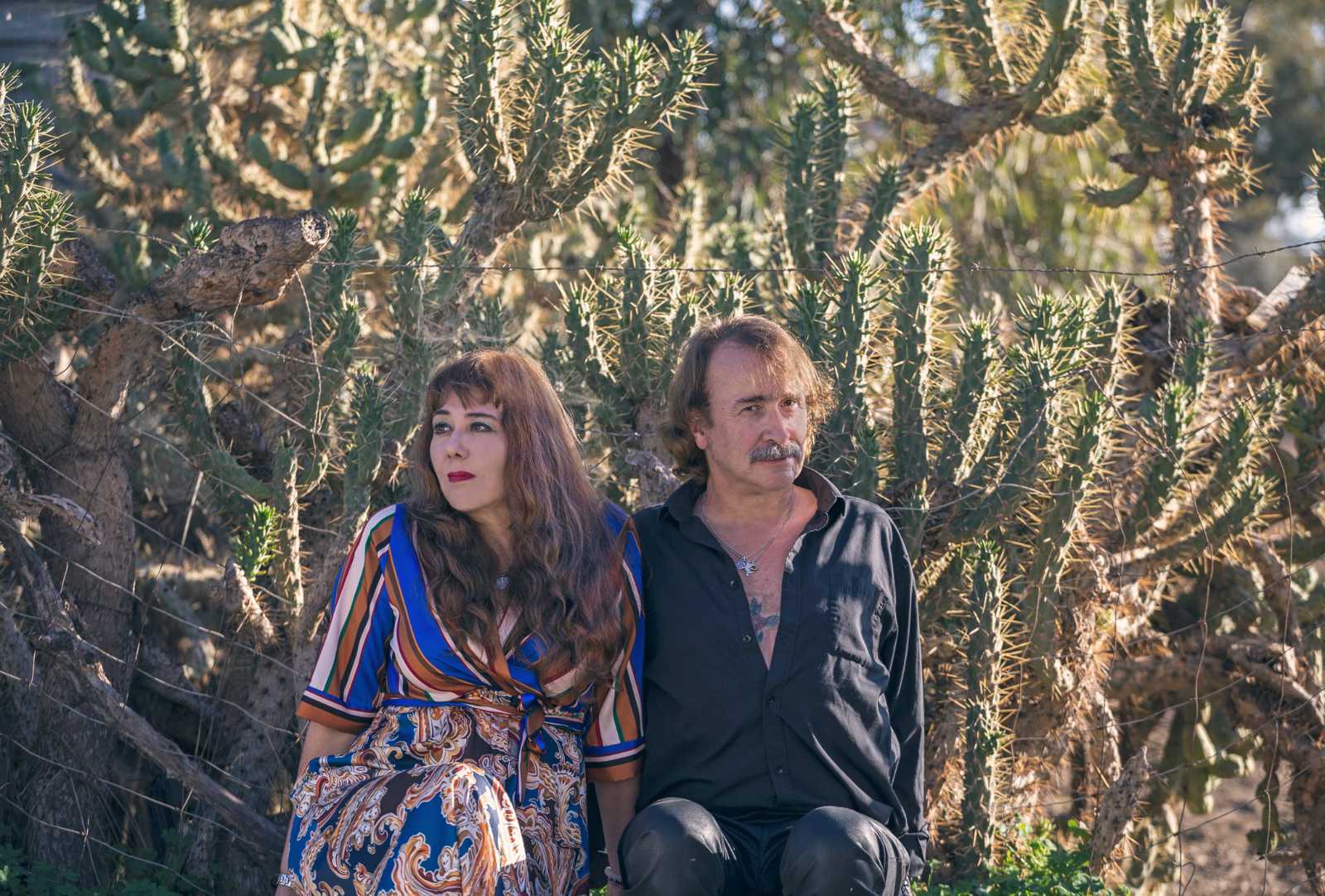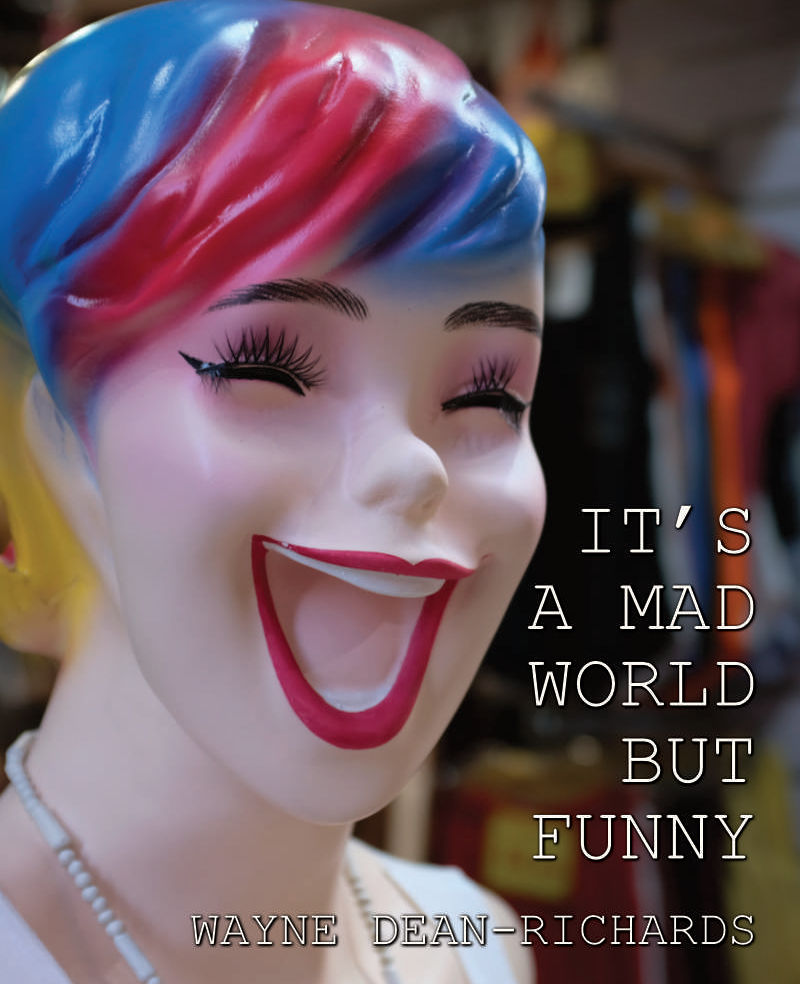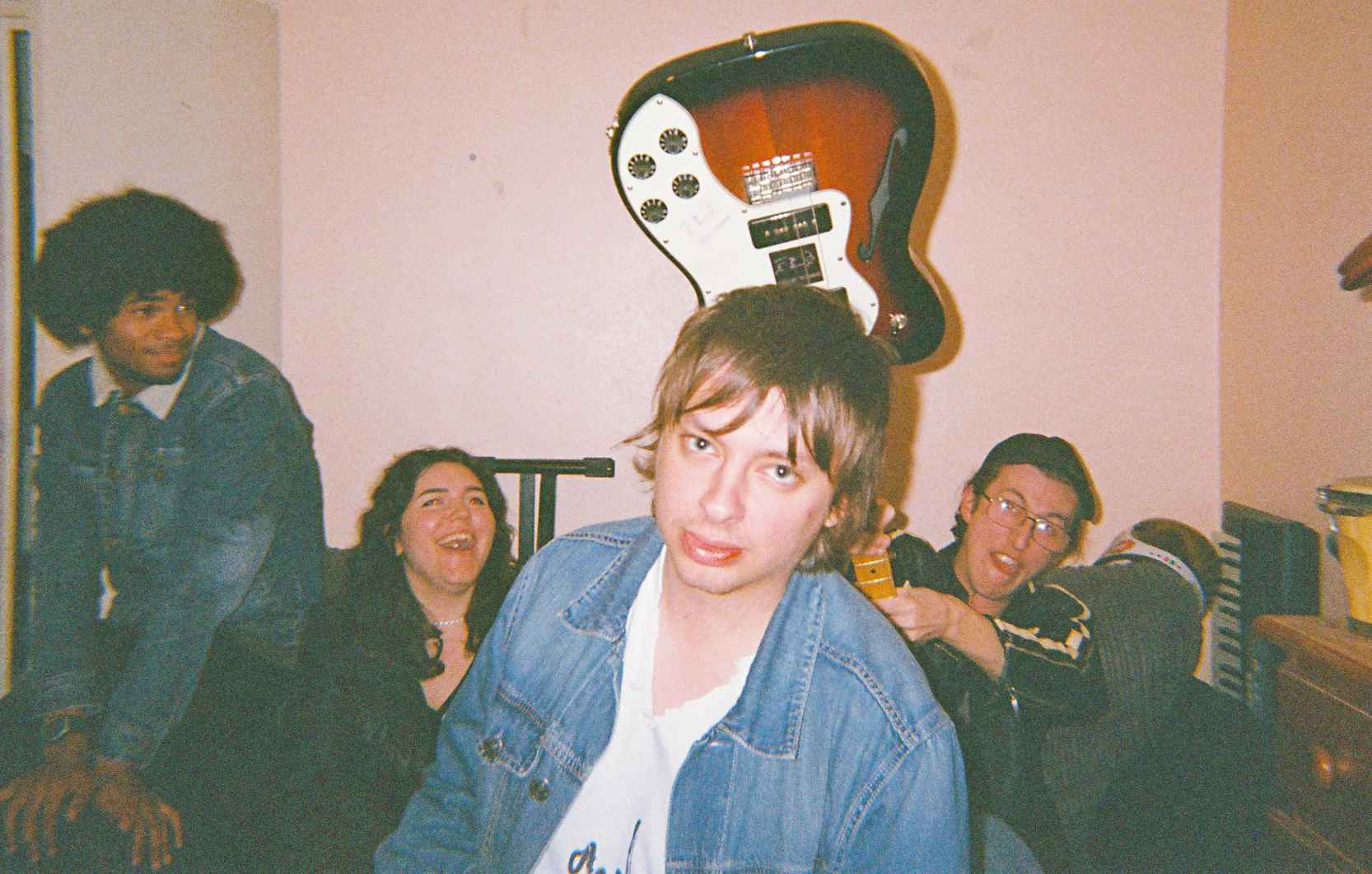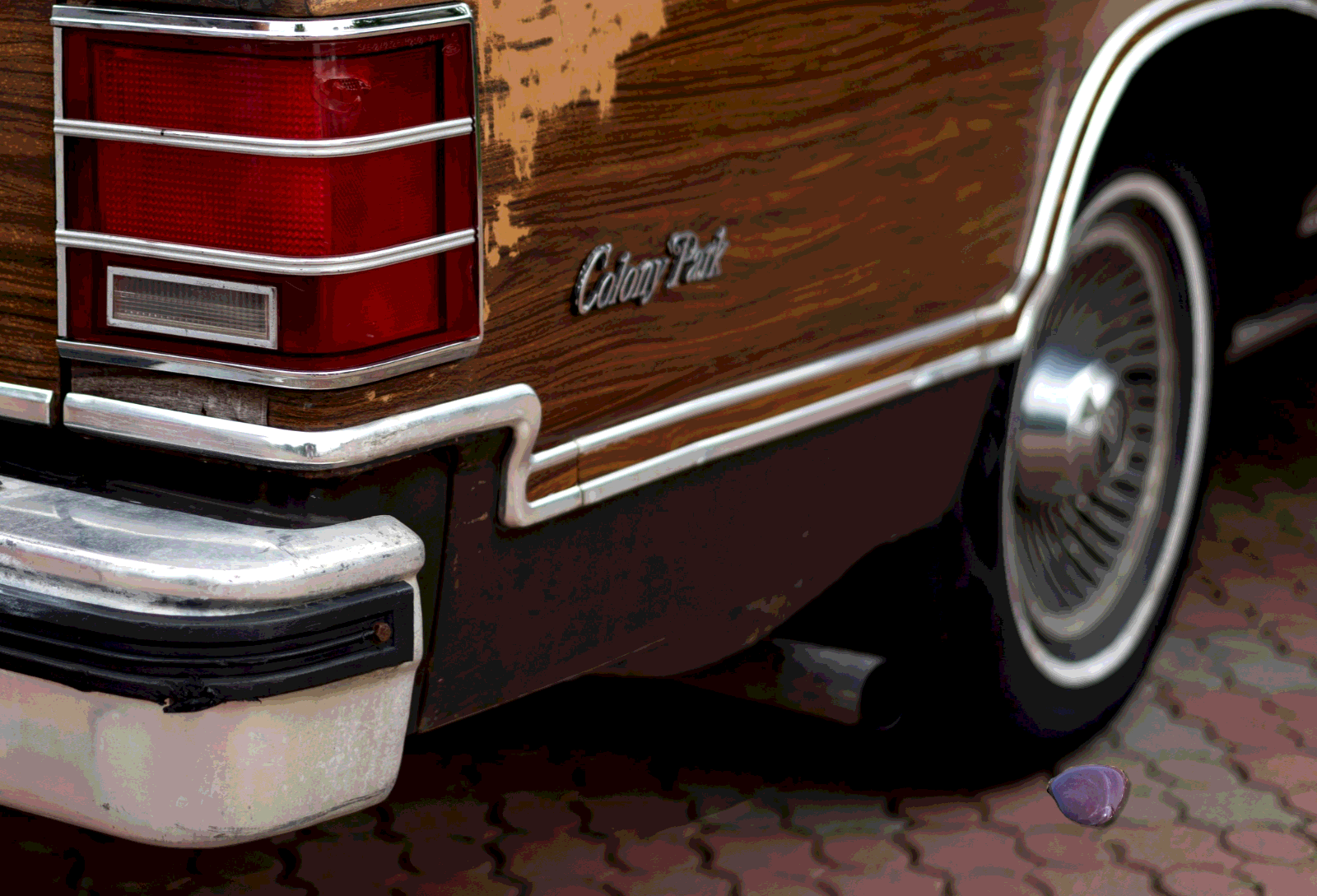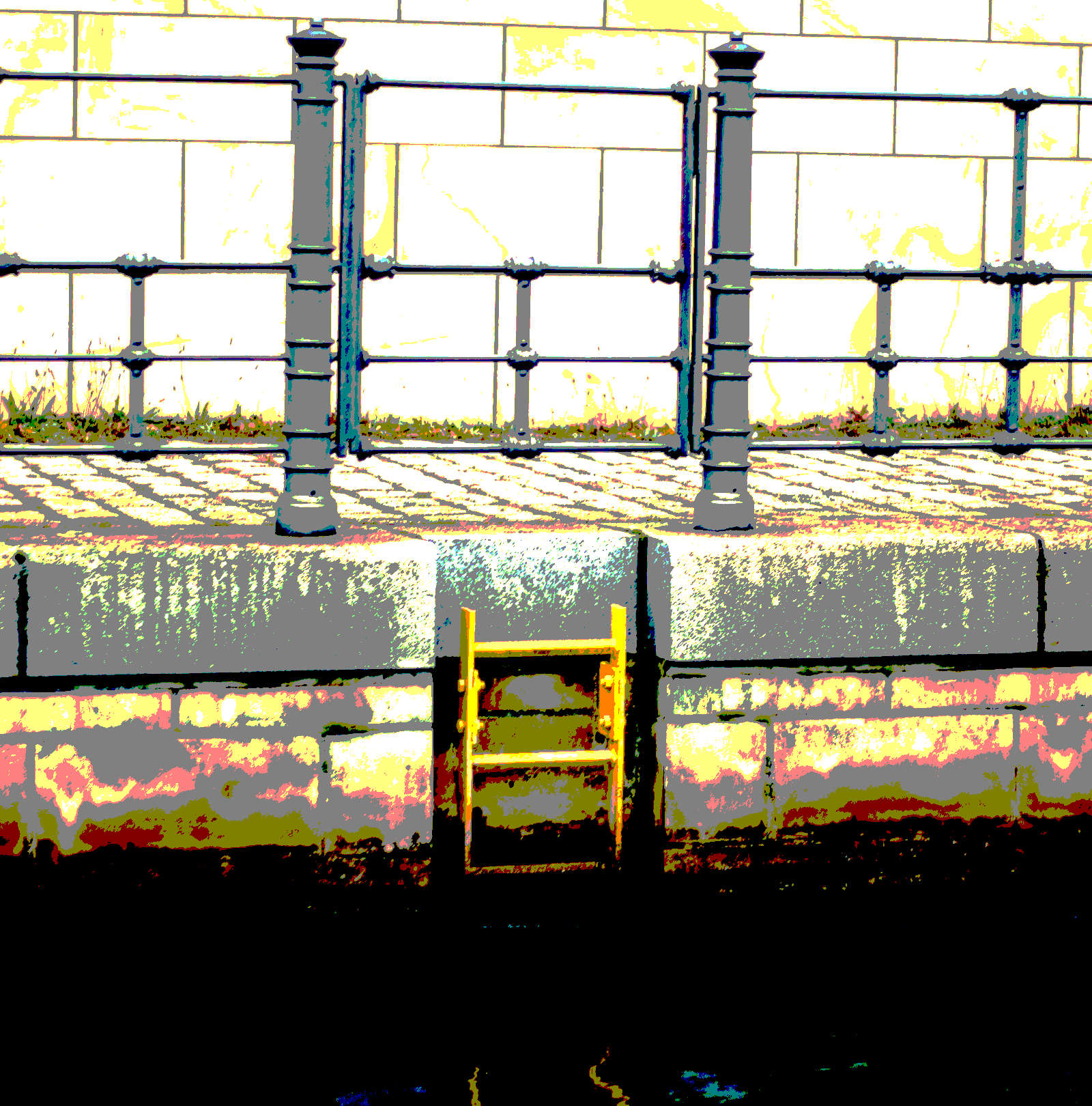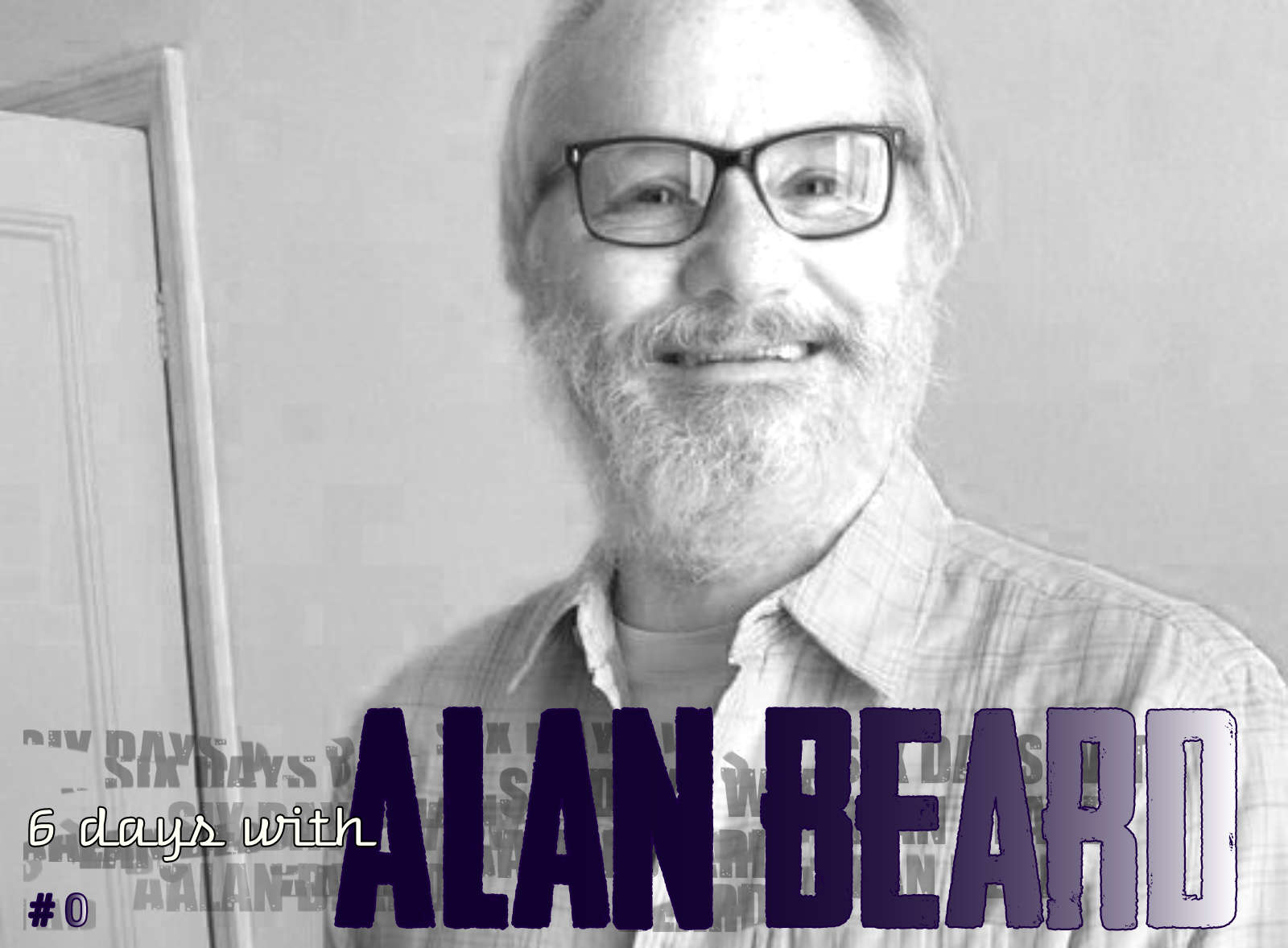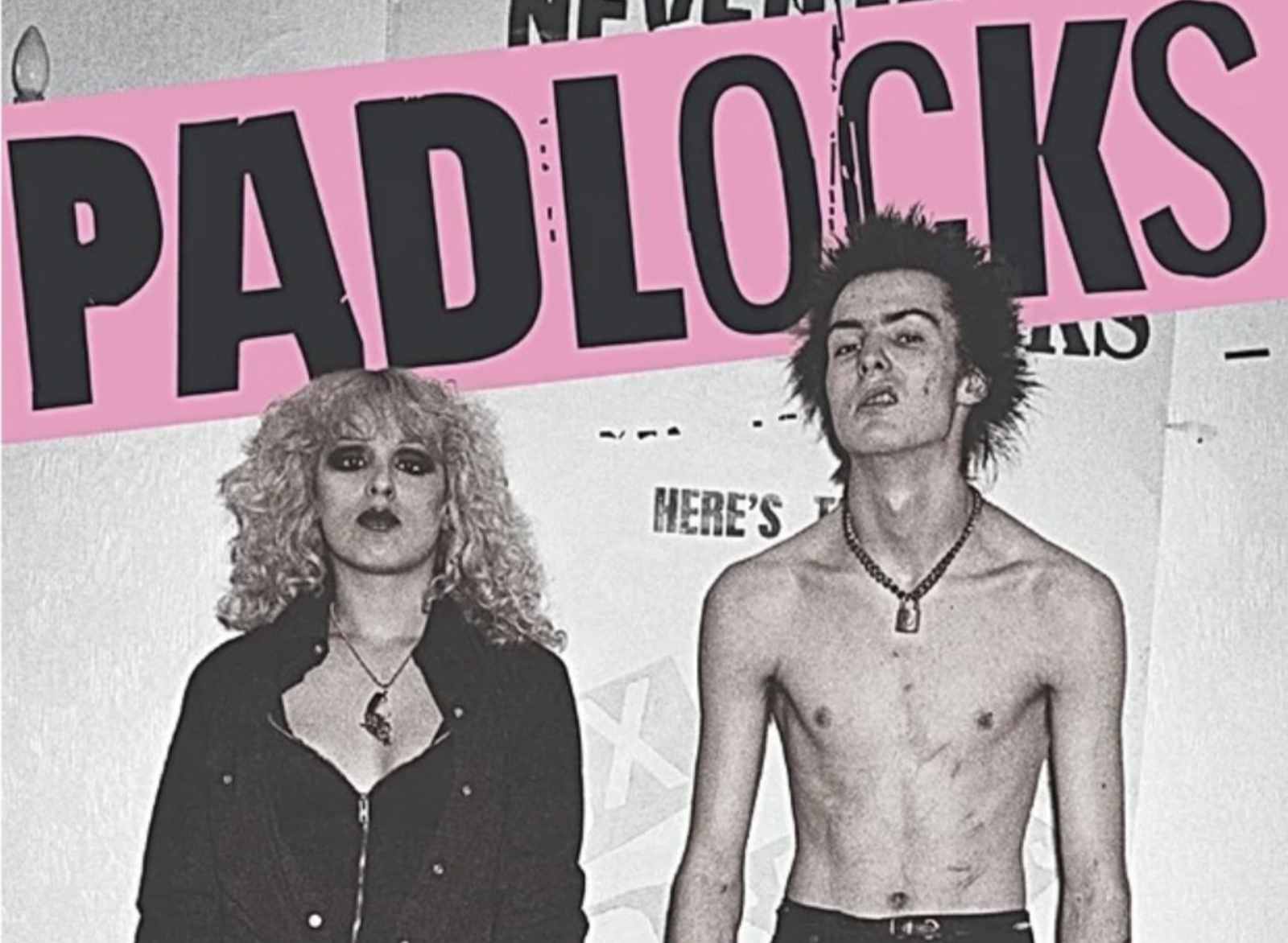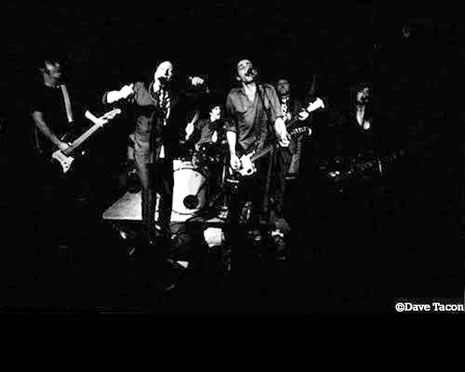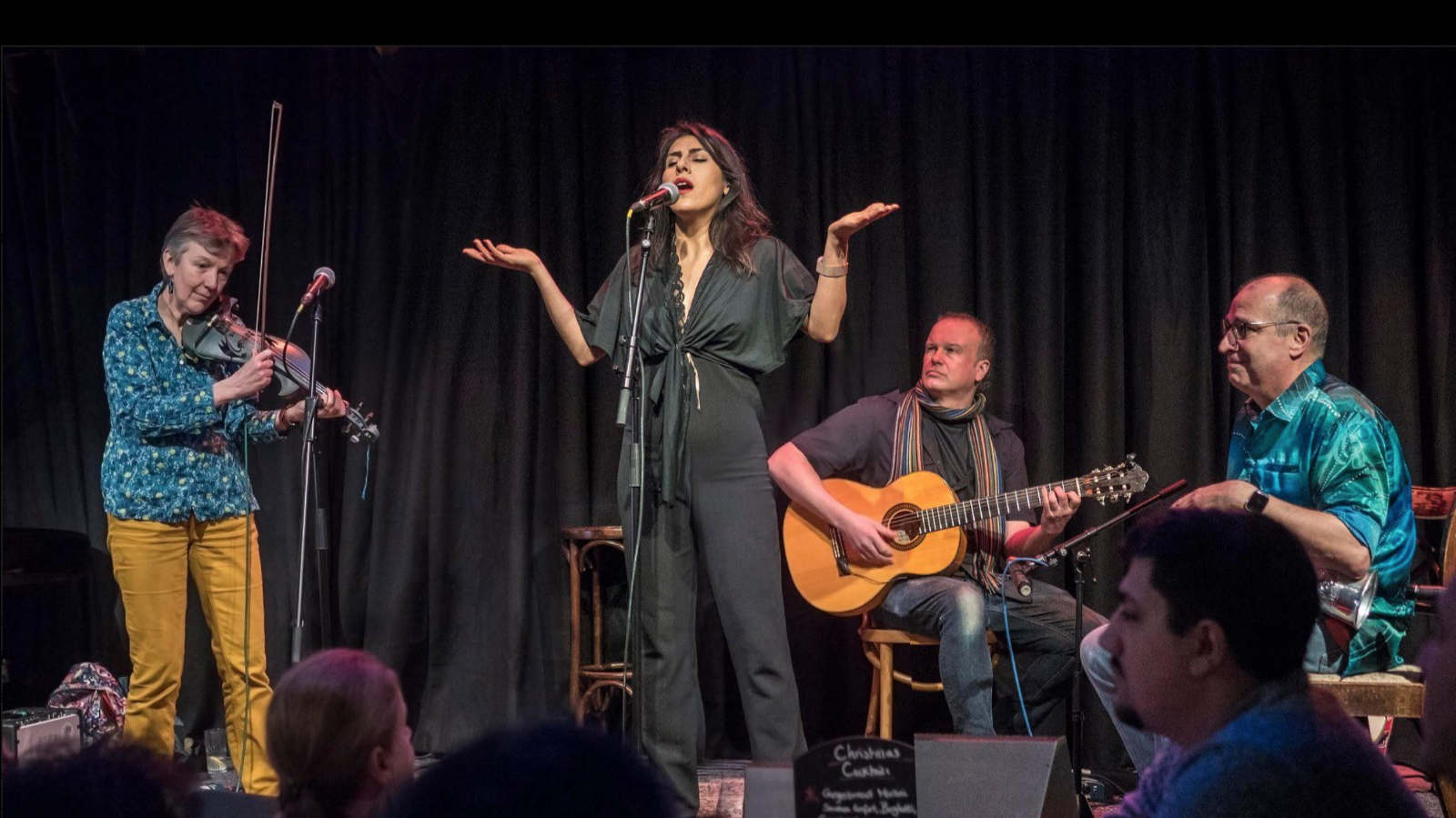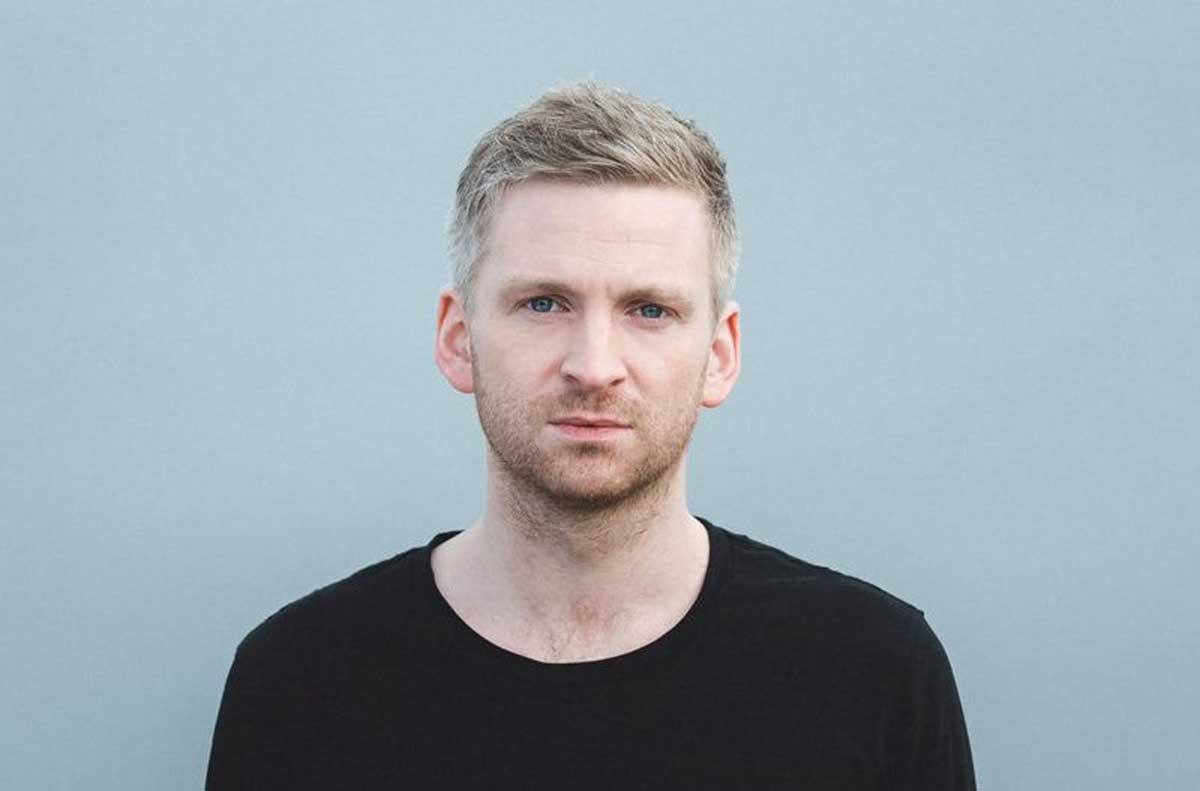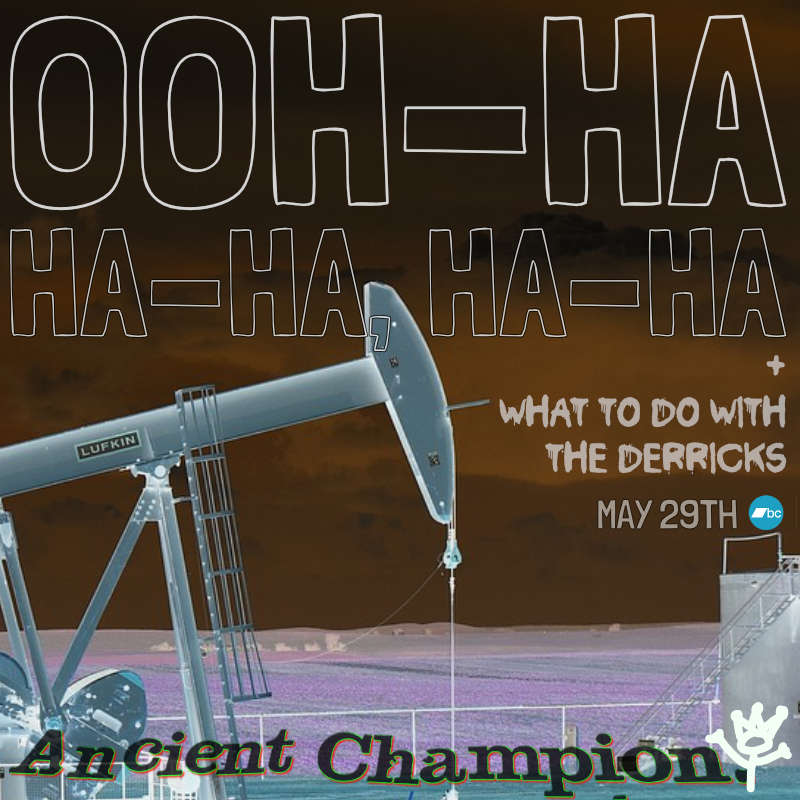Berlin-based avant-garde duo hackedepicciotto are about to release 'Keepsakes', their fifth full-length studio album. Outsideleft's Alan Rider spoke to Alexander Hacke & Danielle de Picciotto about the project, their city, and the music they have just made.
Outsideleft: Thank you for sparing the time to talk to Outsideleft. You have both done so much and so many things, Alex with your long history with Einsturzende Neubaten and lots of musical and artistic collaborations, and Danielle, you co-founded the Love Parade festival and performed as part of Space Cowboys and Crime and The City Solution and others. There is just too much to cover, so let’s not attempt to do that, but focus on hackedepicciotto and the new Keepsakes album, based on the theme of friendship, with each of its nine tracks representing a different friend. You must feel though that your history and other work sometimes overshadows hackedepicciotto? Even now I'm talking to you about it and have that at the back of my mind. Do you find that a problem?
Alexander Hacke: Well it certainly is a scheduling problem because, you know, we have to work and we have these different projects, and they have to be scheduled. It's a logistic thing.
OL: I'm thinking more along the lines that if you were a new band, I would be thinking of you just as hackedepicciottio, I wouldn't be thinking of your other acts and your other backgrounds, and you coming together as a collaboration. I don't know if you think that's a problem, that people are not listening to you with fresh ears?
Danielle de Picciotto: We started doing this (hackedepicciotto) about 15 years ago and if we didn't have our backgrounds, it would be difficult at that age to start a new project which gets as much attention, because you normally only get that attention when you're in your 20s. So in that way, our backgrounds, especially Neubaten, is a help in that people are interested. But it also does bring that shadow onto our project in that it's sometimes treated as if it's Alex's solo side project, and it's not really seen that we're in this together 50/50. To put it bluntly, I'm just as important! That is a problem at times. It was a problem at the beginning especially, but now hackedepicciotto is starting to be seen as a separate entity, it's becoming better in that respect.
Alexander Hacke: And you know Neubaten wouldn't have survived that long if it wasn't for these other projects. Really, I wouldn't have survived if it wasn't for the other things that I do outside of Neubaten. This is my life's blood. This is now my priority, actually. Neubaten is an entity on its own, this is more of a personal thing.
OL: I think it sounds very different as well, there's a lot of space in it. It feels full, but it's also full of space as well and I do like albums that have a story to them. I'm interested in the ideas behind the ‘Keepsakes’ album, with each track representing a friend. How do you think "This is what my friend sounds like"? Because that's an interesting idea to me - what a friend might sound like - and how the two of you create that together.
Danielle de Picciotto: I don't know if you saw the video that I made for Schwarze Milch?
OL: Yeah, it is really interesting and fun to watch
Danielle de Picciotto: Thanks. Usually in the videos, it's always the two of us, but for the first time, I thought, okay, I'm going to put in a person with every instrument that we play. It was actually shocking for myself to see how full the room would get if we had musicians for every instrument that we play. What we do is, we have an idea, and then basically, one of us starts something like, let's say Alex does a percussion or I play a melody. And then the other says, Oh, I have an idea for that. And so we kind of alternate. It's quite instinctive, but it's always working in layers on top of each other without knowing what the other person will do. So in that way, it leaves a lot of space, leaving space for the other or leaving space for the music.
Alexander Hacke: We have been developing and evolving together for a long time and we are on a level of trust together that is unsurpassed in a regular band. So it's sometimes easier to just let the music take over in that sense.
Danielle de Picciotto: The interesting thing is that we're so different in so many ways. We're very different in the instruments that we play like I play non-electric, old instruments, Alex plays percussion. We're very different in the instrumentation we use. We're very different in personalities and experiences. It's actually not that we know what the other one is going to do. Quite the opposite. I'm still very often surprised by what Alex does and we still have absolutely no idea what the other one's gonna come up with.
Alexander Hacke: Ideally the music becomes its own entity and has its own demands anyway. It is not about what we really feel we should be doing, or it's not really about what we really feel we would like to express at any point, it's the piece of music that says "Yeah, I am that and whatever you try to make me, I am that, you know, and then then you just have to serve". Although for this album, it was slightly different because we had to include those friends. We were doing a lot more thinking. Is this representing our friends? and is this also representing us? We couldn't be quite as instinctive as we usually are. Usually, it's just I like this, he likes that, let's get it together. But this time, there was a lot more thinking and weighing out involved because of the friendship theme, because we don't want to lose our signature sound and our signature approach to playing music together, but on the other hand, we had to stay true to people we were paying homage to.
OL: What did they feel about the tracks? Did anybody think that their track wasn't representative of them?
Alexander Hacke: We won't know until the album has been released. You have listened to the entire album, but so far, only the one track has been made public, so they haven't heard it yet. So we'll see what happens with our acquaintances!
Danielle de Picciotto: What's important about this whole thing is that the music had to be able to stand on its own feet, knowing who the people are. So that was that's why for us, it's important to people to hear the music without immediately thinking, Oh, that's them, because most of the people on the album that we're dedicating it to are also musicians. We didn't want to lose our sound. That was really, really, important. Because both of us can play any style of music, and have many eclectic, different, tastes, we have to force ourselves to stay in a certain realm, because otherwise, it'll be all over the place. That was especially difficult for 'Keepsakes' because we had to keep that sound of ours, but add influences from the friends featured that expands our music in a way that we would like.
Alexander Hacke: I also have to stress, these are all homages. They are expressions of love. And there's no strategy about that. You see what I mean? It's like a unique and genuine approach to expressing your love for someone.
OL: It’s a great idea. I think it's really interesting. I've not seen anybody do that before. People have written love songs to an individual, but not to a bunch of friends or an homage to people that you admire or get on with.
Danielle de Picciotto: It's kind of like doing portraits of people, which is also really tricky. I mean, drawing a portrait of somebody, it's the most difficult thing.
OL: And also a good way to lose your friends!
Danielle de Picciotto: Haha. It's a very intense way of looking at somebody, and it was much more intense than we had expected, working that way, thinking of the whole person and what are they like? What style? What character? What expression? All those things. We didn't really think about that before, how universal each person is and how much that actually means. So it was quite intense.
OL: I can imagine. Some acts that are married or in a close partnership can also find it a little bit too much when they take that work home with them as well. Do you find it easy to switch off from it together?
Alexander Hacke: In German, we say 'selbständig', which is a word for self-employed, it just means that we work and we work all the time anyway. We have to because otherwise, we wouldn't survive. But also, it is not about punishment and reward. You see, I don't work in order to reward myself with doing something else afterward. The work is the punishment and the reward. You see what I mean? I can't switch off. We are creators, we are co-creators with God. We create our own world, and that never stops.
Danielle de Picciotto: So one could say it's exhausting, but it's also very rewarding.
OL: Danielle, you're not originally from Berlin, or Germany, but both of you actively promote Berlin culture and art. What is special about Berlin that makes it distinct from other places in the world, that you feel you need to communicate to others?
Danielle de Picciotto: The reason why I came to Berlin and why stayed in Berlin was that back then, it was poor, but it was not dangerous, and it was cheap, and you didn't have to worry about money. And that kind of really had an impact on me and still has an impact on me today, because it kind of proves the fact that you don't need competition to be creative. You know, if you don't have to work and worry about money, people become creative automatically. It kind of proves the point that all of this pathological capitalistic worldview actually destroys creativity more than anything else. You don't have to follow rules, you can just create your own world and that's very, very Berlin, that everybody created themselves and they didn't ask for anybody's permission or follow any rules. That's changed a little bit in the meantime because Berlin's become very expensive. And because of that, I find it important to continue speaking about it to remind even the Berliners of that. I think that creativity is food for the soul for everybody.
OL: It does feel harder to make money from artistic pursuits now though. Even though everyone’s got the avenues to do a lot now easily and relatively cheaply, it still doesn't seem easy for creative musicians to make a living, which is a shame.
Danielle de Picciotto: Absolutely. It is important to understand that one is being forced or manipulated into thinking in certain directions. For instance, the last art rebellion we did was in 2010, when we realised that we were putting all of our money into our house, and that we were just working and working and working for that house. So we said, okay, we'll just give up the house. We basically said we're not going to do that, we're just going to give up that one thing that is being told to us that we need, that we don't need. We want to be creative and if that's keeping us from doing it, then we're just gonna give that up and see what happens. It's very idealistic, obviously, and the world today is very expensive, but there are ways of breaking the system for yourself.
Alexander Hacke: The thing that has been lost with commercialism and in the way society or the system is moving ahead, is the genuinely authentic thing that happens when a person dedicates their life to doing that. Creativity is not an ornament that you can do whilst you check the stock market. That's lost if it becomes this commodity. It was interesting during the pandemic, that the corporations said it's a hobby.
Danielle de Picciotto: I hate that word. That's what the politicians were saying, "it's a hobby, and why should we keep it alive?"
Alexander Hacke: Some people you know, spend time doing art as a hobby, and that's fine. But then there are also people like us and a few others that do dedicate their life to creating something that is authentic, that has integrity, that is meaningful, and that needs to be acknowledged. That's very important. It's a fight that's lifelong.
OL: One of the things I also wanted to ask you was about your working with drones and recording drone sounds. Alex, you have said that you're playing with time rather than playing an instrument, which I thought was a great quote.
Alexander Hacke: The concept of working with drones is something that we discovered during the process of freeing ourselves from architectural structures and becoming nomads. We were thinking that now that we have freed ourselves from these architectural structures and concepts about owning a house, and we are free to go places, why do we still confine ourselves into musical structures? Why don't we try to work with open, plain sounds, spaces, and expressions. We started to look more into the minimalist concepts of people like LaMonte Young and, and Tony Conrad, thinking how this can be utilised as a platform for the interaction between the two of us, rather than having the two of us confined in a musical structure. The drone is like a surge of energy that we can surf on.
Danielle de Picciotto: Basically, as soon as we had tried that, our sound was born because the very first album we did was called Hitman's Heel and it was very much more conventional. It was like songs and ballads. And it just wasn't right because we were confined by the structure of the songs. But as soon as we opened up that structure and left it, all of a sudden, the things that each one of us is good at suddenly fitted together. When we gave up the structure, it suddenly felt amazing. We were recording in the Mojave desert in Joshua Tree, and we said, okay, let's just let go and just play, let's let the desert influence us, there's no walls here. All of a sudden it worked out. It was like a miracle. Both of us were like, wow, what's happening?
OL: Like a bird in a cage? You open the cage up and the bird can fly.
Danielle de Picciotto: Exactly. Ever since then, we've understood how it works. We know the basic concept of what we have to do to be able to do what we do. Interestingly, with this album for the first time we've gone back to doing more song structural things like we did on our very first album, but because we're doing it from our now perspective, it works better than back then when we were doing it from a traditional kind of song structure. So I think that's really interesting that we also are bringing something in from the very beginning, which didn't work back then, and now suddenly, is.
Alexander Hacke: It's like we're building little sand castles by the great ocean, you know, rather than trying to build an apartment building, like we did when we did an album within these confined structures. So that's, yeah, it's a different approach and everything we do evolves in a way. So we learn from past experiences, as all people do, and in our failures,
OL: Failures are as important as successes I guess, because you can learn a lot from them. In music terms, mistakes can generate new ideas.
Alexander Hacke: We are definitely not fans of prog rock and noodling and that kind of stuff, but, basically, yes, we like to make a lot of mistakes from what we learn. Absolutely. It's good to learn. There's a great Peter Cook quote, who you probably know, you know, Peter Cook, the great English thinker. And he said, " of course I remember all my mistakes. And I'm therefore very capable of repeating them!"
OL: That's a good note to end on I think. Thank you both for your time. It's been great fun talking to you. I hope that you enjoyed it as well. Good luck with the album and your tour. I think they'll both go really well. It'll be interesting to see the album played in a live setting too.
‘Keepsakes’ is released on vinyl, CD, and download on Mute on 28th July.
